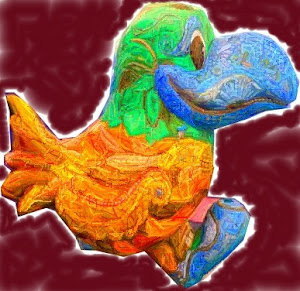I found this article in the Times of London online this morning about Tara Barbazon at the University of Brighton who believes that “easy access to information has dulled students’ sense of curiosity and is stifling debate.” This, of course, is an empirical question. Has Google damped curiosity and debate? Do Google-users debate less vigorously and show less intellectual curiosity than non-Google users? In the 1970s’ and ‘80s, were the late night dorm debates and discussions just rockin’ because no one could appeal to a common authority like Wikipedia or find additional information through Google? I don’t think so, but it’s something that can be empirically studied, and I would want to look at those studies before making bold pronouncements like “Google is white bread for the mind.” Barbazon is a professor of media studies who has written books like University of Google and Digital Hemlock: Internet Education and the Poisoning of Teaching that are critical of the new information age, distance learning, and tech trends in higher education. There are legions of social scientists concerned about information overload, information literacy, and the effect of the Internet on knowledge production and reception. In fact, the Communication and Information Technology section of the American Sociological Association is one of the fastest growing groups within American sociology, expanding tremendously in the last five years.
My first impulse is to brand Barbazon as a luddite. Instead, I’ll merely point out that I found her university homepage, information about her scholarship and teaching, and all of her books online using – you guessed it – Google.
-- Brian

3 comments:
I feel measured sympathy for Barbazon's concerns about internet information. After all, frequently information on the internet is difficult to verify, and the nature of online knowledge reproduction brings questions of who can provide "authoritative" information to the forefront. Obviously this can be problematic in the eyes of academics. Douglas Cowan writes in his book "Cyberhenge: Modern Pagans on the Internet" that "because the Internet's prime directive dictates that 'information must flow', and there is no overarching process by which information can be vetted either before or after Web publication, the problem of all but indiscriminate reproduction will continue to be an important one in any analysis...on the Web." (Cowan 2005:8). However, I don't think you can simply declare one type of information search as harmful to education and another helpful. I'm old enough to remember having to do research papers using card catalogues, and can say for certain the breadth of my knowledge and academic output has benefitted greatly from being able to search databases, access online journals, and "google" research topics. Perhaps the greater sociological concern Barbazon's work implies is not the dangers inherent in easy access to mass information, but a cultural drive towards convenience which sacrifices critical consumption? Is this a question of quantity versus quality, because I’m not sure they are mutually exclusive.
What's a card catalog?
I actually still use card catalogs when I do genealogical research at the Kansas State Historical Society. A lot of research libraries and archives still use them, but more and more is going online. When I first arrived at KU, most of the KU Spencer Research Library (where I got the Blackmar info) was only accessible through the card catalog. Now, almost all of their material is available online and the card catalog is an after thought.
The "convenience" argument I buy. For instance, the old Lexis/Nexis interface required specific search syntax, but it was very "user-controlled." Now, L/N has this "natural search" field, which pulls up what I need *most* of the time, but I don't know how it's doing its search. It was almost "easier" when I had to work a little bit. Google-like search interfaces breed a kind of researcher laziness (in my opinion).
The "authority" question seems to loom large in a lot of the debates about the internet these days.
-- Brian
I don't buy her thesis, but your own argument would be stronger if you and your first commenter spelled Tara Brabazon's name correctly, as it is spelled in your sources.
How did you successfully Google her work?
Post a Comment